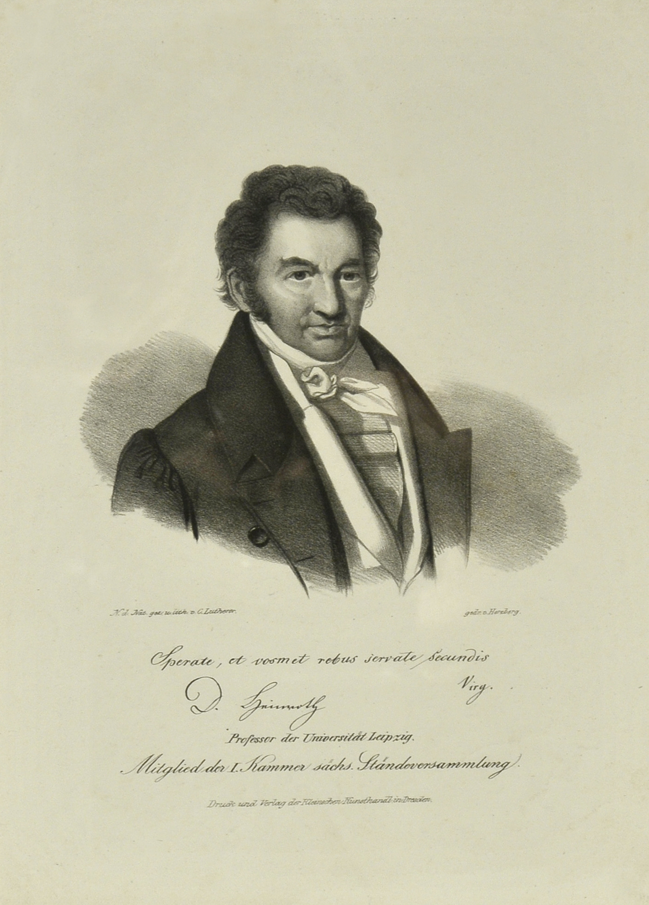
On 21 October 1811, on the command of Friedrich August I, King of Saxony (1750–1827), a professorship for Psychische Therapie (Psychic Therapy) was established at the University of Leipzig. This professorship is widely recognised as the first of its kind in Europe, and possibly even the world. Johann Christian August Heinroth (1773–1843) was appointed as the inaugural professor, and this year we celebrate his 250th birthday.
Heinroth, born in Leipzig on 17 January 1773 was the son of the surgeon Johann Christian August Heinroth (died 1803/1804) and his wife Christina Dorothea Heinroth, née Nicolai (died 1803/1805). After completing his education at Nicolaischule (1782–91), Heinroth initially embarked on theology studies in Leipzig before transferring to medicine. He obtained the title of Bakkalaureus (Bachelor) in 1794 and subsequently earned a doctorate in philosophy and became a Magister der freien Künste (Master of Liberal Arts) in 1797. Two years later, he complemented his primarily theoretical knowledge with practical experience at the Kuhrfürstlich Klinisches Institut in Leipzig. After an additional semester studying human medicine in Vienna, Heinroth returned to Leipzig in 1803. In 1805, he was granted his medical doctorate (Medicinae Discendae et Exercendae Ratio) and the following year, he habilitated (Über das Bedürfnis des Studiums der medizinischen Anthropologie).
In 1811, Heinroth was appointed as an Extraordinary Professor of Medicine in Leipzig. He used his inaugural lecture to present a psychiatric topic ‘De morborum animi et pathematum animi differentia’. In addition to his academic responsibilities, Heinroth also practised medicine, starting in 1810 at the Leipzig Workhouse for Volunteers, and from 1814 to 1833, he served as a house physician at the municipal reformatory, orphanage and care facility St Georg. In 1817, Heinroth also obtained a doctoral degree in philosophy (Magister-Habilitation). In 1819, he was appointed as a full Professor of Medicine in Leipzig. In addition to his scholarly work at the university, Heinroth was actively involved as one of the editors of the Zeitschrift für Psychische Ärzte (Journal for Psychiatric Physicians), which he cofounded in 1818.
Religious considerations played a significant role in Heinroth's concept of illness. He viewed mental disorders as expressions of guilt. According to Heinroth, every individual had the freedom to choose whether to live with or without God. This decision, in his opinion, correlated with a person's state of health (God-fearing life being associated with health, and sinful life with illness). However, he limited this perspective solely to psychological disorders, asserting that only they were expressions of guilt and thus the individual was responsible, whereas physical illness never arose voluntarily and the individual was therefore blameless. Based on this understanding, Heinroth developed a therapeutic concept infused with religious influence. The underlying principle of this concept was that a mentally ill person could only regain health by renouncing all earthly passions and physical needs, focusing solely on fulfilling the task assigned by God, namely to lead a life according to religious faith.




eLetters
No eLetters have been published for this article.